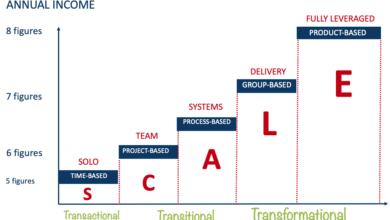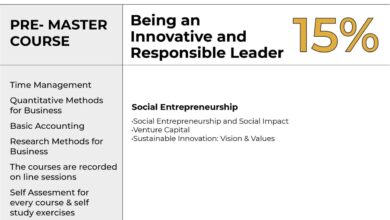
Baby Boomer Business Dilemma Navigating Change
The baby boomer business dilemma presents a unique challenge for entrepreneurs in this generation. Facing the complexities of a rapidly evolving business landscape, they grapple with transitioning from established careers to new ventures, balancing financial constraints with technological advancements, and integrating work-life balance with personal responsibilities. This exploration delves into the specific hurdles and triumphs faced by baby boomer entrepreneurs.
This blog post examines the core conflict faced by baby boomers in the business world, highlighting the challenges specific to this generation’s entrepreneurial endeavors. We will explore different industries where this dilemma is particularly pronounced, identify key factors contributing to this issue, and detail the pressures and expectations impacting their business decisions.
Defining the Dilemma: The Baby Boomer Business Dilemma
The baby boomer generation, now entering or well into retirement, faces a unique set of challenges in the business world. Their experience and expertise, often highly valued, are juxtaposed against a rapidly changing landscape, creating a complex dilemma for those seeking to continue entrepreneurial endeavors. This generation’s struggles highlight the difficulties of adapting to new technologies, market dynamics, and generational shifts in the workplace.This dilemma is not just theoretical; it manifests in real-world scenarios, affecting the success of businesses and the career paths of individuals.
From navigating digital platforms to understanding the demands of a younger workforce, baby boomers face significant hurdles. The core of the problem lies in bridging the gap between their established methods and the evolving expectations of modern business.
Challenges in Entrepreneurial Endeavors
Baby boomers who choose to remain active in the business world often encounter obstacles specific to their generation. These difficulties stem from the rapid pace of technological advancement, a shifting workforce dynamic, and a changing market. This requires a significant adjustment to traditional business models and practices. Maintaining relevance in the face of rapidly evolving technologies is a considerable hurdle for baby boomers in their entrepreneurial pursuits.
Specific Industries with Pronounced Dilemmas
The struggle is particularly acute in industries undergoing digital transformation. Retail, for example, has seen a significant shift toward online platforms. Baby boomer entrepreneurs in retail face the challenge of adapting their brick-and-mortar stores to meet the demands of e-commerce. Similarly, the financial sector, with its increasing reliance on digital banking and financial technologies, presents a formidable obstacle for those accustomed to traditional methods.
Contributing Factors to the Business Dilemma
Several key factors contribute to this business dilemma for baby boomers. The most significant is the rapid pace of technological advancement. The adoption of new technologies, like artificial intelligence and machine learning, requires a steep learning curve for this generation, which often have less familiarity with such tools. Moreover, a shift in consumer preferences, driven largely by younger generations, requires businesses to adapt their strategies and offerings.
The need to cultivate and retain younger talent within their organizations further complicates the situation for baby boomer business owners.
Pressures and Expectations Impacting Business Decisions, The baby boomer business dilemma
Baby boomers face a multitude of pressures and expectations that impact their business decisions. The desire to maintain profitability and competitiveness in the market is a constant concern. The need to adapt to the demands of a younger workforce, who may hold different values and expectations, adds another layer of complexity. Balancing the need to maintain a strong financial position with the desire to make a lasting impact on the industry is a challenging balancing act for baby boomers.
Transitioning from Traditional Roles

The transition from a traditional career to entrepreneurship can be particularly challenging for Baby Boomers, often accustomed to structured environments and predictable routines. They face unique hurdles in adapting to the flexibility and uncertainty inherent in starting and running a business, a stark contrast to their previous professional lives. This transition requires a significant shift in mindset and often necessitates a reassessment of their skills, experiences, and goals.The entrepreneurial landscape is a dynamic environment that differs greatly from the established corporate world.
Baby Boomers, having largely navigated hierarchical structures and predictable career progressions, might struggle with the autonomy and decision-making responsibilities of entrepreneurship. This can lead to feelings of uncertainty and even overwhelm. Moreover, the realities of running a business, including managing finances, marketing, and customer relations, often differ significantly from their expectations.
Difficulties in Transitioning
The shift from a traditional career to entrepreneurship presents various obstacles for Baby Boomers. These include navigating unfamiliar technologies, adapting to rapid changes in the market, and managing the emotional toll of business failures or setbacks. The inherent risk and uncertainty of entrepreneurship can be daunting for those accustomed to the security of a stable job.
Comparing Entrepreneurial Expectations and Realities
Baby Boomers’ expectations of entrepreneurial life often stem from idealized portrayals in popular culture or personal experiences with successful business owners. The reality, however, frequently involves long hours, financial instability, and a high degree of personal responsibility. Younger generations, accustomed to a more flexible and potentially less-structured professional environment, might approach entrepreneurship with different expectations and a more pragmatic understanding of the challenges involved.
This difference in perspective can create varying levels of stress and motivation during the transition.
Baby boomers are facing a unique business dilemma, navigating the changing landscape of the 21st century. As they consider their options, the future of sustainable energy is clearly shifting towards innovative solutions, like those explored in the future of sustainable energy looks to alternative materials. This means a re-evaluation of traditional business models is essential for boomers looking to remain relevant and profitable in the years to come.
Burnout and Motivation
The demanding nature of entrepreneurship can lead to burnout, especially for Baby Boomers who may be used to more structured work-life balances. Maintaining motivation during periods of uncertainty and setbacks is crucial for success. Strategies for maintaining motivation include setting realistic goals, seeking support from mentors or peers, and celebrating small victories along the way.
The baby boomer business dilemma is a tough one, navigating the shift from established careers to new ventures. Oshkosh, for example, is looking at new development near the Fox River, which presents both opportunities and challenges for entrepreneurs of all ages, including baby boomers. This could be a great avenue for new businesses, but finding the right niche and adapting to modern market trends remains a key consideration for those transitioning.
It’s all part of that ongoing challenge for baby boomers seeking a new chapter.
Examples of Successful Transitions
Numerous Baby Boomers have successfully transitioned into entrepreneurship. Consider the case of [Example 1: a specific Baby Boomer entrepreneur who transitioned successfully, briefly describing their journey and impact], or [Example 2: another example, similarly described]. These examples demonstrate the possibility of successful transitions, but also highlight the need for careful planning, adaptability, and a strong support system.
Traditional Career Paths vs. Entrepreneurial Journeys
| Characteristic | Traditional Career Path | Potential Entrepreneurial Journey |
|---|---|---|
| Structure | Hierarchical, defined roles, predictable progression | Autonomous, flexible, adaptable, uncertain |
| Decision-Making | Limited, delegated to superiors | Significant, personal responsibility, rapid adaptation |
| Risk | Relatively low | High, potential for financial loss and failure |
| Work-Life Balance | Often structured, predictable hours | Potentially demanding, unpredictable hours |
| Financial Security | Generally stable income | Variable, dependent on business success |
| Learning | Formal training, structured development | Continuous learning, self-directed growth, adaptability |
Financial and Resource Constraints
Baby boomers facing the prospect of starting or transitioning businesses often encounter a unique set of financial challenges. Their accumulated life experience, while valuable, doesn’t always translate directly into readily available capital. Navigating the complexities of funding, market fluctuations, and securing resources is crucial for success. This section delves into the financial considerations, funding options, and strategies employed by baby boomers to overcome these obstacles.Financial considerations play a pivotal role in the success or failure of a baby boomer-led venture.
Retirement savings, often a significant asset, might be viewed as a safety net rather than a readily accessible resource for business funding. The desire to maintain a consistent income stream and preserve their retirement nest egg can influence business decisions, leading to a cautious approach to investment and risk. Furthermore, the need to balance existing financial obligations, such as mortgages or healthcare expenses, adds another layer of complexity to the financial picture.
Financial Considerations for Baby Boomer Entrepreneurs
Baby boomers, having often accumulated substantial life experience, might not always possess the same level of financial expertise required for navigating the complexities of business funding. They may lack the specialized knowledge and understanding of modern financial instruments and market trends. This requires careful consideration of financial advisors and mentors with a strong understanding of the current business environment.
Furthermore, navigating the nuances of startup costs, operational expenses, and long-term financial projections are key to sustainable success.
Funding Options for Baby Boomer Entrepreneurs
The availability and accessibility of funding for baby boomer entrepreneurs vary considerably. Traditional lending institutions might not always recognize the unique skill sets and experience of this demographic, potentially leading to difficulties in securing loans. Furthermore, traditional business plans might not effectively convey the value proposition of an established business, often relying heavily on quantifiable metrics that may not accurately reflect the qualitative value of experience and established relationships.
Alternative funding sources such as angel investors, venture capital firms, and crowdfunding platforms are becoming increasingly accessible.
Impact of Economic Downturns and Market Fluctuations
Economic downturns and market fluctuations pose significant challenges to all businesses, especially those led by baby boomers who might have a more conservative approach to risk. Maintaining stability during periods of uncertainty and adapting business strategies to changing market conditions are critical for long-term survival. Diversification of revenue streams and developing contingency plans can help mitigate the impact of economic downturns.
Examples of successful baby boomer-led businesses demonstrate that adaptability and resilience are key during such periods.
Comparing Funding Strategies
Baby boomer entrepreneurs can utilize a range of funding strategies. Bootstrapping, relying on personal savings, is a common strategy, especially in the initial stages. Small business loans, grants, and crowdfunding campaigns offer viable alternatives. Angel investors and venture capital firms might be sought for larger-scale projects, but their criteria and expectations must be carefully considered. Each funding strategy comes with its own set of advantages and disadvantages, and the most suitable option depends on the specific business needs and circumstances.
Examples of Overcoming Financial Hurdles
Many baby boomer entrepreneurs have successfully navigated financial hurdles by leveraging their extensive network of contacts and established relationships. Drawing on existing professional connections, establishing strategic partnerships, and developing innovative funding models are some of the strategies employed. Identifying and exploiting existing market niches, leveraging personal expertise, and demonstrating a strong understanding of the industry can significantly improve the likelihood of securing funding.
Funding Options Table
| Funding Option | Pros | Cons |
|---|---|---|
| Personal Savings | Complete control, no debt, flexibility | Limited capital, potential for risk |
| Small Business Loans | Established structure, potentially lower interest rates | Strict requirements, potentially high interest rates |
| Grants | No repayment required, potentially easier access | Highly competitive, stringent application process |
| Crowdfunding | Broader reach, potential for early adopters | Requires strong marketing and promotion, limited control |
| Angel Investors/Venture Capital | Significant capital injection, potential expertise | High expectations, potential for loss of control |
Adapting to Technological Advancements
Baby boomers, a generation accustomed to a world without ubiquitous technology, face unique challenges in navigating the rapidly evolving digital landscape. This often leads to a gap in skills and understanding, creating a hurdle to success in the modern business world. Overcoming this digital divide requires a conscious effort to learn and adapt. This section explores the difficulties baby boomers encounter with technological advancements, the impact of digital literacy, and how they can bridge the gap to thrive in the current market.Technological advancements are transforming industries at an unprecedented pace.
This necessitates continuous learning and adaptation to remain competitive. Baby boomers, having built careers in a pre-digital era, may find themselves at a disadvantage when compared to younger generations. However, the desire to succeed and remain relevant within their respective fields fuels their determination to adapt and learn new skills.
Challenges in Adapting to Rapid Technological Changes
Baby boomers often face challenges in adapting to rapid technological changes due to a lack of prior exposure to these advancements during their formative years. This lack of familiarity can lead to hesitation and apprehension when adopting new technologies, resulting in a slower learning curve. The complexity of many modern technologies can also prove daunting, especially for those accustomed to simpler systems.
Impact of Digital Literacy and Technological Skills on Business Success
Digital literacy and technological skills are critical for business success in the modern age. Businesses require individuals who can navigate digital platforms, utilize software, and leverage data analytics to make informed decisions. A lack of these skills can hinder productivity, efficiency, and competitiveness. Businesses employing baby boomers with strong digital skills are more likely to thrive in the current environment.
The baby boomer business dilemma is a real head-scratcher, isn’t it? So many are looking to transition careers or start new ventures, but adapting to changing market landscapes can be tough. Thankfully, examples like the Stevens Points Breast Care Center receiving redesignation, as detailed in this recent article stevens points breast care center receives redesignation , show that even established businesses can successfully re-position themselves.
This speaks volumes about the opportunities available for boomers navigating this transition, reminding us that adaptability is key in today’s economy.
Examples of Baby Boomers Successfully Incorporating Technology
Many baby boomers have successfully incorporated technology into their businesses. Examples include utilizing e-commerce platforms to expand their reach, implementing CRM systems to manage customer relationships, and leveraging social media for marketing and networking. These successes demonstrate the potential for baby boomers to adapt and thrive in the digital age.
Importance of Learning New Skills to Stay Competitive
Continuous learning is crucial for baby boomers to stay competitive. This includes mastering software applications, understanding data analytics, and utilizing cloud-based platforms. By proactively seeking opportunities to enhance their skills, baby boomers can bridge the digital divide and maintain a relevant skill set.
Comparison of Technological Proficiency Between Baby Boomers and Younger Generations
Younger generations are typically more technologically proficient than baby boomers, owing to their early exposure to digital tools and platforms. This difference in proficiency can create a generational gap in the workplace. However, baby boomers often possess valuable experience and knowledge that younger generations can leverage to gain a comprehensive understanding of the business landscape.
Evolution of Technology and Its Impact on Different Business Sectors
| Technology | Business Sector | Challenges for Baby Boomers |
|---|---|---|
| E-commerce | Retail, Hospitality | Adapting to online sales, managing online stores, digital marketing |
| Cloud Computing | Finance, Consulting | Understanding cloud-based storage, security protocols, data management |
| Mobile Technology | Logistics, Transportation | Integrating mobile platforms for communication, managing mobile operations |
| Artificial Intelligence | Healthcare, Manufacturing | Understanding AI applications, integrating AI tools, ethical considerations |
Balancing Work and Personal Life

The journey of a baby boomer entrepreneur is often a balancing act between the demands of a growing business and the desire for a fulfilling personal life. This delicate equilibrium becomes even more critical as they navigate the complexities of their later career stages, needing to find ways to sustain their energy and well-being while still achieving success. Maintaining a healthy work-life balance is not just desirable, it’s essential for long-term sustainability and well-being.The demands of running a business can be overwhelming, especially for those used to traditional work structures.
Entrepreneurs often find themselves working long hours, dealing with unpredictable schedules, and facing constant pressure to achieve results. This intense workload can easily lead to stress, burnout, and a deterioration of overall health and happiness. Recognizing the potential for these negative impacts and actively implementing strategies to prevent them is crucial for sustained success.
The Importance of Work-Life Balance for Baby Boomer Entrepreneurs
Baby boomers have often prioritized their careers over personal life, but the realities of later-stage entrepreneurship demand a shift in perspective. A strong work-life balance fosters a healthier mindset and improved productivity, leading to better decision-making and greater overall success. This is particularly important in the face of potential health concerns and the desire for a fulfilling retirement.
Challenges of Maintaining a Healthy Lifestyle
Maintaining a healthy lifestyle while running a business can be extremely challenging. The demanding nature of entrepreneurship frequently disrupts traditional routines, making it difficult to prioritize health and wellness activities such as exercise, healthy eating, and sufficient sleep. This can also lead to neglecting social connections and personal interests, further straining the delicate balance between work and personal life.
Strategies for Managing Stress and Avoiding Burnout
Implementing proactive strategies to manage stress and avoid burnout is crucial for sustainable success. These strategies include time management techniques, delegation, seeking support from mentors or advisors, and creating boundaries between work and personal life. Prioritizing self-care activities such as mindfulness, exercise, and relaxation techniques is also essential for maintaining mental and physical well-being. Taking breaks and scheduling time for leisure activities can also contribute to a sense of balance and prevent burnout.
Examples of Baby Boomers Who Successfully Integrated Work and Personal Life
Many baby boomer entrepreneurs have successfully integrated work and personal life. For instance, a successful real estate investor might dedicate specific hours each week to spending time with family or pursuing hobbies. Similarly, a technology entrepreneur might schedule regular exercise or yoga sessions to maintain physical health, even during demanding project phases. These examples illustrate the possibility of finding harmony between professional and personal life.
Impact of Family Responsibilities on Business Ventures
Family responsibilities, such as caring for aging parents or raising grandchildren, can significantly impact business ventures. Entrepreneurs may need to adjust their work schedules or seek flexible arrangements to accommodate these responsibilities. Understanding and planning for these potential challenges in advance can help to avoid significant disruptions or conflicts.
Strategies for Achieving a Healthy Work-Life Balance
| Strategy | Description | Example |
|---|---|---|
| Time Blocking | Allocate specific blocks of time for work and personal activities. | Schedule 2 hours daily for business tasks, and 1 hour for exercise. |
| Delegation | Distribute tasks to employees or assistants where possible. | Delegate administrative tasks to a virtual assistant. |
| Setting Boundaries | Establish clear boundaries between work and personal time. | Turn off work emails and notifications after a certain hour. |
| Prioritization | Focus on high-priority tasks and delegate or eliminate less important ones. | Prioritize client meetings and strategic planning over less urgent administrative tasks. |
| Regular Breaks | Schedule regular breaks throughout the day to avoid burnout. | Take a 15-minute walk or meditate every 2 hours. |
| Seeking Support | Connect with mentors, advisors, or support networks. | Join a business mentorship program or networking group. |
| Self-Care | Make time for activities that promote physical and mental well-being. | Engage in hobbies like gardening or reading. |
Networking and Mentorship
Navigating the entrepreneurial landscape as a baby boomer requires a robust support system. Networking and mentorship are crucial tools for overcoming challenges, gaining insights, and fostering innovation. This segment dives into the significance of building connections and leveraging experienced guidance to successfully launch and sustain a business.
Importance of Networking for Baby Boomer Entrepreneurs
Strong networks provide baby boomer entrepreneurs with access to valuable resources and opportunities. They offer a platform to share experiences, learn from others’ successes and failures, and gain insights into industry trends. Networking can also lead to partnerships, joint ventures, and potential clients or investors. For example, a retired engineer might connect with a younger entrepreneur with a technology start-up, potentially leading to consulting opportunities or valuable feedback.
Mentorship as a Supporting Force
Mentorship plays a vital role in guiding baby boomer entrepreneurs. A mentor can offer practical advice, share industry knowledge, and provide emotional support during challenging times. Mentorship can also help bridge generational gaps in understanding technology and market dynamics. Mentorship programs provide a structured environment for knowledge transfer and mutual benefit. For instance, a successful business owner with decades of experience can provide invaluable insights to a younger entrepreneur seeking to expand their operations.
Benefits of Collaboration with Other Entrepreneurs and Professionals
Collaboration among entrepreneurs and professionals fosters a supportive ecosystem. Sharing knowledge and resources strengthens individual businesses, while collective efforts can lead to groundbreaking innovations and broader market reach. Joint ventures, partnerships, and cross-promotional strategies can be powerful tools for growth. A collaborative environment, for instance, could lead to the development of innovative products or services by combining different expertise.
Successful Networking Strategies Employed by Baby Boomers
Baby boomers are adept at leveraging various networking strategies. Attending industry conferences, joining professional organizations, and actively participating in online forums are common approaches. Utilizing social media platforms, particularly LinkedIn, to connect with peers and potential collaborators is also increasingly popular. These methods allow them to engage with professionals in their field and build meaningful relationships.
Potential Sources of Mentorship for Baby Boomer Entrepreneurs
Mentorship can come from a variety of sources. Experienced professionals in their industry, retired executives, and successful entrepreneurs can all offer valuable insights. Organizations dedicated to supporting entrepreneurship often have established mentorship programs. Additionally, online platforms can connect entrepreneurs with potential mentors. These connections can offer guidance and support, fostering a sense of community and shared success.
Networking Opportunities and Mentorship Programs for Baby Boomers
| Networking Opportunity | Mentorship Program |
|---|---|
| Industry Conferences | Small Business Administration (SBA) Mentorship Programs |
| Professional Organizations (e.g., local chambers of commerce) | Local Entrepreneurship Centers |
| Online Forums and Communities (e.g., LinkedIn groups) | Corporate Mentorship Initiatives |
| Networking Events (e.g., meetups, workshops) | University Business Incubators |
These programs and opportunities offer structured support, fostering a network that can accelerate growth and provide invaluable guidance to baby boomer entrepreneurs.
Overcoming Mindset and Societal Expectations

The entrepreneurial journey for baby boomers often intersects with deeply ingrained societal expectations and a mindset shaped by a different era. Navigating this intersection requires a proactive approach to challenging assumptions and embracing a new paradigm. This involves recognizing the weight of these expectations and consciously working to dismantle them, fostering a growth mindset, and learning from the experiences of those who have successfully defied conventional wisdom.Societal norms and expectations, particularly for those who have spent their careers in more traditional roles, can create mental roadblocks for baby boomer entrepreneurs.
The idea that entrepreneurship is solely for younger generations, or that certain skills are only applicable to younger individuals, can create a self-imposed limitation. These preconceived notions, often subconsciously held, can hinder progress and create self-doubt. Understanding these influences is the first step toward overcoming them.
Impact of Societal Expectations
Baby boomers may face pressure to conform to traditional business models or career paths. This can manifest as a reluctance to embrace innovative approaches or a fear of failure, rooted in past experiences of job security and stability. The pressure to adhere to conventional wisdom can make it difficult to take calculated risks, especially for those who have built their careers on established frameworks.
Furthermore, societal expectations regarding retirement and the “typical” life stages can create anxieties about the feasibility of entrepreneurship later in life.
Embracing Change and Adaptability
Embracing change and adaptability is crucial for success in today’s dynamic business landscape. Baby boomers who embrace learning new technologies, market trends, and business strategies can unlock opportunities previously unseen. This involves recognizing that their established knowledge and experience are invaluable assets but must be complemented with a willingness to acquire new skills and perspectives. Adaptability is not merely about adjusting to change; it’s about proactively seeking and embracing new possibilities.
Importance of Self-Belief and Overcoming Self-Doubt
Self-belief is the bedrock of entrepreneurial success. Baby boomers, with their accumulated experience and knowledge, possess a wealth of valuable insights. However, self-doubt, fueled by societal pressures and the perceived challenges of a new venture, can significantly impact their entrepreneurial journey. Overcoming self-doubt involves fostering a positive self-image, acknowledging past successes, and focusing on personal strengths. Building confidence requires deliberate action, like seeking mentorship, engaging in positive self-talk, and celebrating small victories.
Examples of Baby Boomers Challenging Conventional Wisdom
Numerous baby boomers have successfully defied societal expectations and embarked on entrepreneurial journeys. Examples include individuals who have transitioned from established careers in finance or technology to start businesses in emerging industries. These examples demonstrate that age is not a barrier to innovation and that entrepreneurial spirit can flourish at any stage of life. Their stories inspire and provide a roadmap for others facing similar challenges.
Role of Mindset in Achieving Entrepreneurial Success
A growth mindset, characterized by a belief in the ability to develop and improve skills and knowledge, is essential for entrepreneurial success. Baby boomers, by embracing this mindset, can leverage their experience and wisdom to overcome obstacles and adapt to new challenges. A growth mindset fosters a continuous learning approach, allowing individuals to embrace setbacks as learning opportunities rather than indicators of failure.
Mindset Shifts for Baby Boomers
| Old Mindset | New Mindset |
|---|---|
| Focus on established roles and responsibilities. | Embrace the flexibility and autonomy of entrepreneurship. |
| Fear of failure and risk aversion. | View challenges as opportunities for growth and learning. |
| Limited exposure to new technologies. | Proactive seeking of knowledge and training in new technologies. |
| Traditional career path expectations. | Embracing entrepreneurial ventures as fulfilling career options. |
| Reliance on traditional business models. | Exploration and adoption of innovative approaches and models. |
Conclusive Thoughts
In conclusion, the baby boomer business dilemma isn’t insurmountable. By understanding the unique challenges and embracing strategies for transition, financial management, technological adaptation, and work-life balance, baby boomer entrepreneurs can thrive in the modern business world. Networking and mentorship play crucial roles in overcoming societal expectations and building a successful future.






